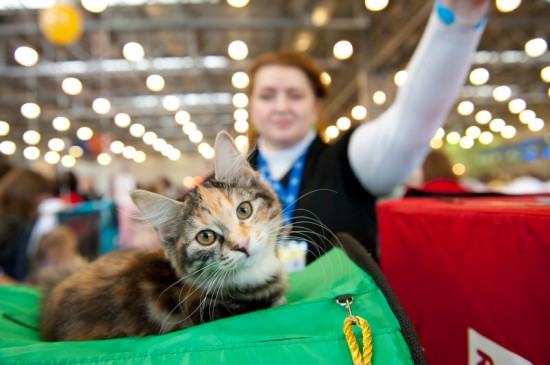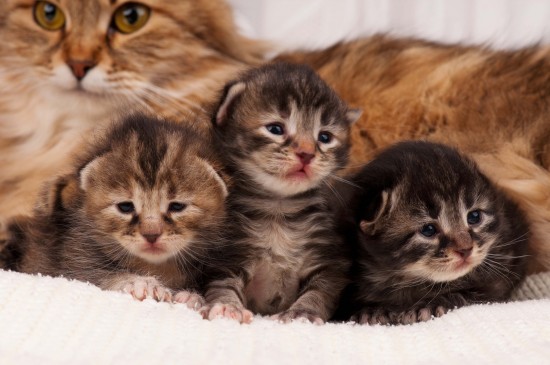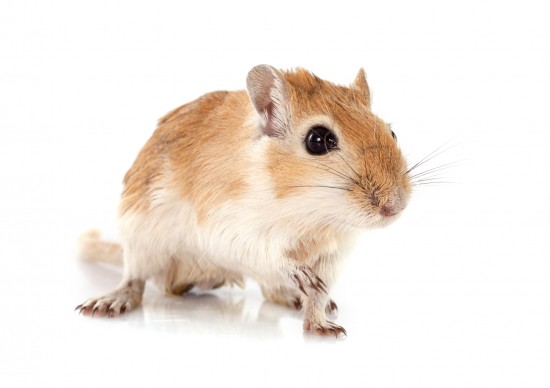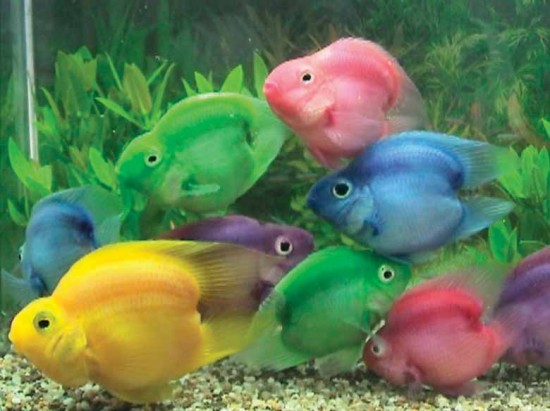Aloe vera may have beneficial medicinal qualities for humans. English ivy crawling up the side of your home may have aesthetic appeal. But common household plants, like these, may be posing a threat to your four-legged friend. Here are ONLYforPETLOVERS top five plants to keep out of reach, and out of the mouths, of Fido and Fluffy.
Aloe Vera
People commonly use aloe vera to calm sunburns, treat cuts and scrapes and soothe skin conditions such as eczema. Aloe vera is also commonly used, especially in Asia, in foods and drinks, acting as a natural medicine for digestive health. Chomping on aloe vera for dogs and cats though can provide anything but for them. Ingestion of aloe vera for pets can cause vomiting, diarrhea, loss of appetite, tremors and change in urine color, according to the ASPCA Poison Control Center.
To reap the natural healing benefits of aloe vera to humans without the threat to your pet, try keeping the plant well out of reach. There are also a plethora of aloe vera based products that you can buy at either your local drugstore or health food store that provide the same healing benefits without the potential risk to your pet.
English Ivy
Ivies, especially the English variety, are extremely common household plants due to their ease of care and quickness of growth. Walls are often covered in this ivy variety and provide an aesthetically pleasing and unique appeal. The ingestion of their foliage on the other hand can prove catastrophic for pets. According to the ASPCA, symptoms of ingestion include gastrointestinal upset, diarrhea, hyperactivity, difficulty breathing, fever, dilated pupils, muscular weakness and poor coordination. Also, its the foliage that you really have to watch for. Leaves that more toxic than the berries.
If you own a pet, rethink your landscaping plans if English Ivy is on your mind. Ask your local gardening store about similar alternatives to the plant. Not sure whats toxic and whats not? Check with ASPCA Poison Control or your vet before making any concrete plant purchases.
Lilies
This is a heads up to cat lovers everywhere. Although lilies are toxic for dogs as well, they tend to be highly toxic for cats. Toxic blooms include most lilies, including the Asiatic, calla, tiger and Easter just to name a few. The poisonous component has yet to be indentified in lilies but nonetheless has proved sometimes fatal for pets. According to the ASPCA, symptoms often include vomiting, lethargy and poor appetite. Kidney damage can also occur.
The Asiatic and calla lily when ingested can cause oral irritation which includes intense burning of the mouth, lips and tongue as well as excessive drooling. Difficulty swallowing can also occur. Other lilies, such as the day, Easter, glory and lily of the valley, can cause ataxia, cardiac arrhythmias and in extreme cases death.
Tulips
In many places tulips are a sign of spring. The distinctive shape and rich hues make them a popular choice in spring and summer gardens. Ingestion of these blooms can cause intense vomiting in pets though. Diarrhea, hyper salivation, poor appetite and even depression can also occur.
If you have an outdoor pet consider this a time for change and try choosing another blossom to feature. If the blooms are a must take extra precautions to keep them out of reach of your pets or keep your pets inside.
Tomato Plant
Tomatoes may make some people salivate but in pets it can cause hyper salivation. But for pets its not the fruit that pet parents have to worry about, its the foliage. According to the ASPCA, ingestion of the green parts of the plant can cause gastrointestinal upset, drowsiness, poor appetite, confusion, dilated pupils and a slow heart rate.
What to Do
When ingestion of toxic substances has occurred look for symptoms such as gastrointestinal upset, vomiting, diarrhea and poor appetite. Hyper salivation and oral irritation is also a telltale sign of toxic intake. If you suspect that your pet has ingested a toxic substance either contact your vet as soon as possible or the ASPCA Poison Control Center at 1-888-426-4435 24 hours a day, 365 days a year.
Check out the ASPCA Poison Control website today and request a free poison control kit that includes a magnet and decal with all relevant poison control information for quick reference.

 How To Stop Your Dog Pulling On A Lead
How To Stop Your
How To Stop Your Dog Pulling On A Lead
How To Stop Your
 The Supreme Cat Show
The Supreme Cat S
The Supreme Cat Show
The Supreme Cat S
 How Old Should Kittens Be Before They Leave Their Mother?
How Old Should Ki
How Old Should Kittens Be Before They Leave Their Mother?
How Old Should Ki
 10 Things You Need To Know Before Adopting A Gerbil
10 Things You Nee
10 Things You Need To Know Before Adopting A Gerbil
10 Things You Nee
 The Phenomenon Of Dyed Fish, And How To Avoid It
The Phenomenon Of
The Phenomenon Of Dyed Fish, And How To Avoid It
The Phenomenon Of